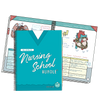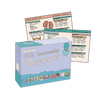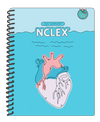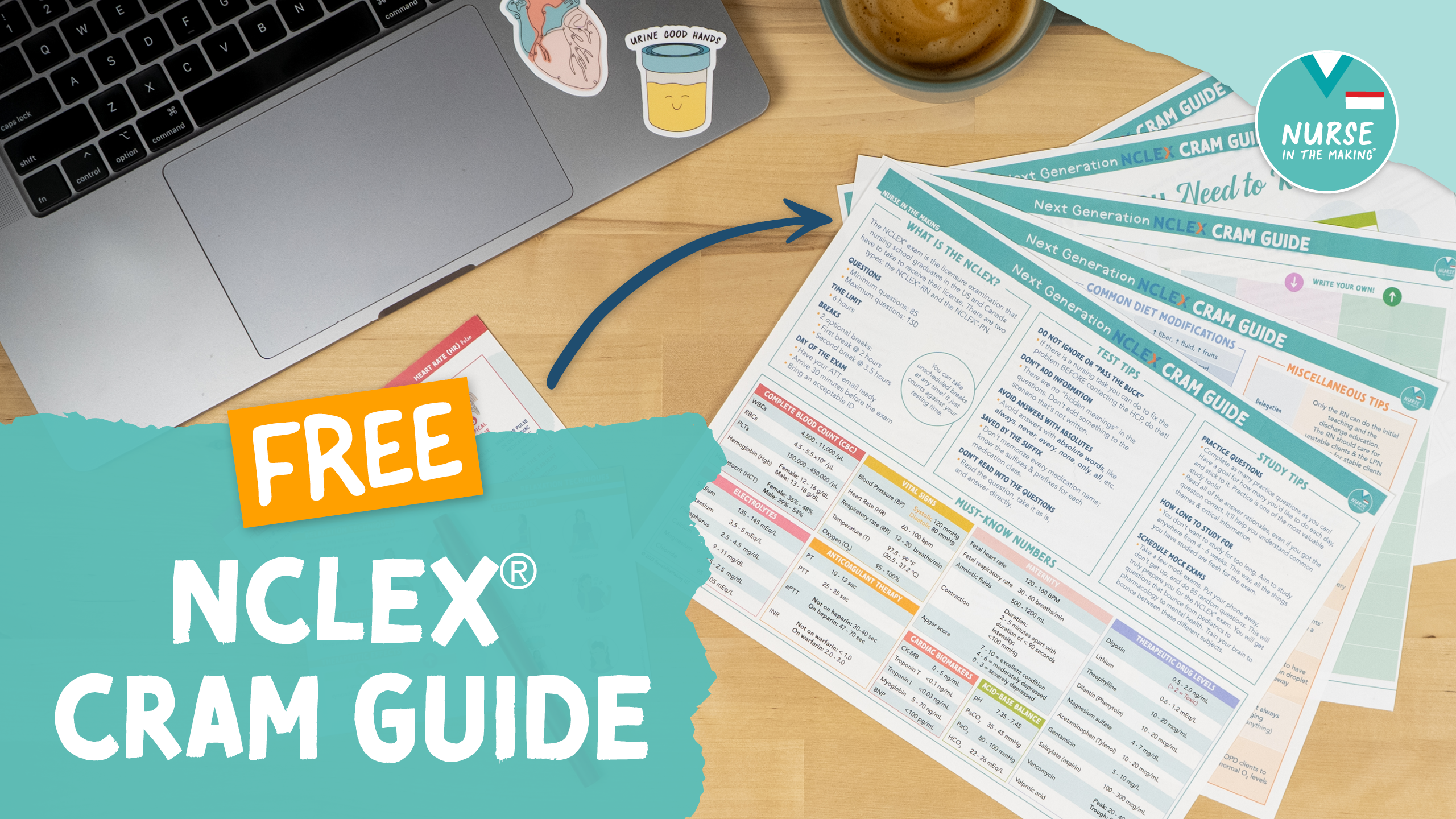Must-Know Numbers for the NCLEX
Vital Signs
Blood Pressure: Systolic 120, Diastolic 80
Heart Rate: 60 - 100 BPM
Respirations: 12 - 20 breaths per minute
Temperature: 97.8 - 99°F (36.5 - 37.2°C), (>100.4 = Infection)
Oxygen: 95 - 100%, COPD pts are expected to have low O2 levels
Arterial Blood Gases (ABGs)
PH: 7.35 - 7.45
PaCO2: 35 - 45 mmHg
PaO2: 80 - 100 mmHg
HCO3: 22 - 26 mEq/L
Labs
Potassium: 3.5 - 5.0 mEq/L
Sodium: 135 - 145 mEq/L
Calcium: 9 - 11 mg/dL
Chloride: 95 - 105 mEq/L
Magnesium: 1.5 - 2.5 mg/dL
BUN: 7 - 20 mg/dL
Creatinine: 0.6 - 1.2 mg/dL
RBCs: 4.5 - 5.5 x106 /µL
WBCs: 4,500 - 11,000 /µL
Platelets: 150,000 - 450,000 /µL
aPTT: NOT ON heparin: 30-40 secs, ON heparin: 47-70 secs
INR: NOT ON warfarin: < 1 sec, ON warfarin: 2-3 secs
Random
Glucose: 70 - 99 mg/dL
BNP: <100 pg/mL (Increased indicates heart failure)
Cardiac Output: 4-8 L/min
Common Signs & Symptoms to Know for the NCLEX
Disorder/Disease + Signs & Symptoms
Diabetic Ketoacidosis: Acetone breath
Diabetes Mellitus: 3 P’s- Polydipsia, Polyphagia, Polyuria
Pernicious Anemia: Red beefy tongue
Kawasaki Syndrome: Strawberry tongue
Emphysema: Barrel chest
Systemic Lupus Erythematosus (SLE): Butterfly rash
Hyperthyroidism: Exophthalmos (bulging or protruding eyeballs)
Angina: Chest pain relieved by NTG
Myocardial Infarction (MI): Crushing pain, pressure & tightness unrelieved by NTG
Addison’s Disease: Hyperpigmentation of the skin
Cushing’s Syndrome: Moon face & “ Buffalo hump” of the neck
Common Diets to know for the NCLEX
Disease/Disorder + Signs & Symptoms
Constipation: ↑ fiber, ↑ fluid, ↑ fruits (Memory Trick: Fluids, Fiber & Fruit Fill up the toilet)
Celiac Disease: Gluten-free diet (Memory Trick: NO BROW- Barely, Rye, Oat, Wheat)
Burns: ↑ protein, ↑ calories
Acute Kidney Injury: Protein-restricted, ↑ calories
COPD : Small, frequent meals, ↑ calories, ↑ fat (These pt’s are burning a lot of calories from trying to breathe off the excess CO2)
Pancreatitis: Small, frequent meals, low-fat
Vomiting or Diarrhea: ↑ fluids & electrolyte replacement
Underweight: ↑ protein, ↓ calories
Hyperlipidemia: ↓ fat, ↓ calories
Hypertension: ↓ fat, ↓ sodium, heart-healthy diet
Cystic Fibrosis: ↑ fluids
Kidney Stones: ↑ fluids
Heart Failure: fluid restriction












